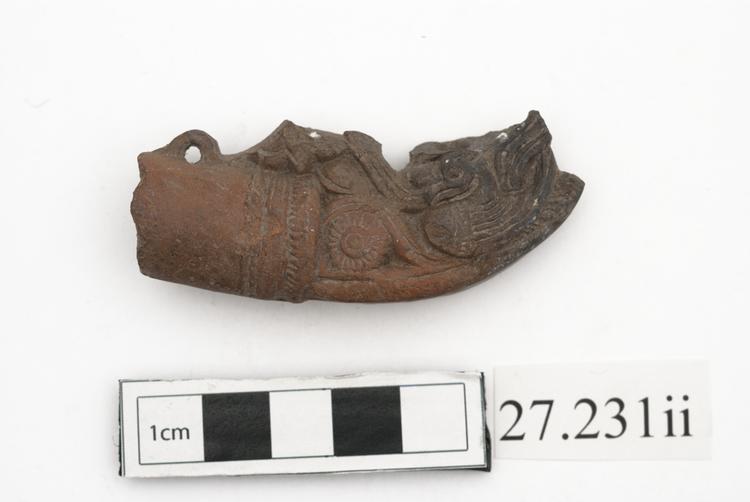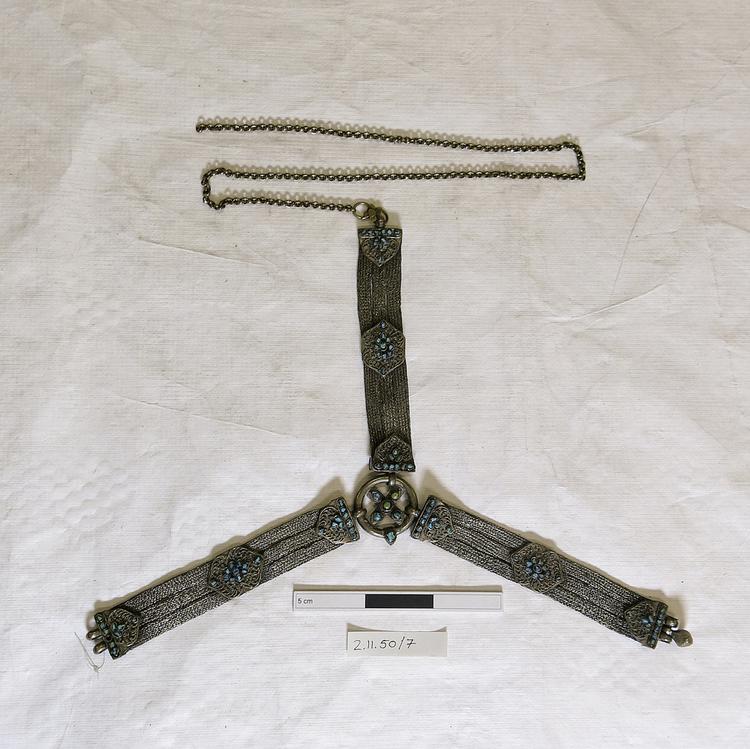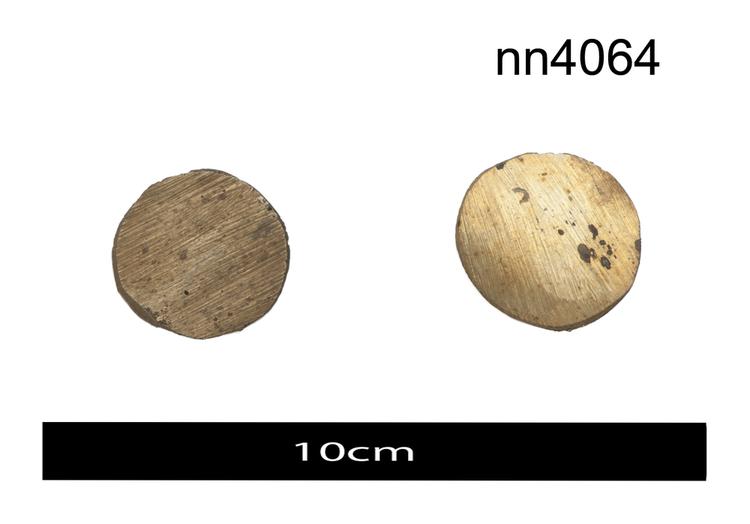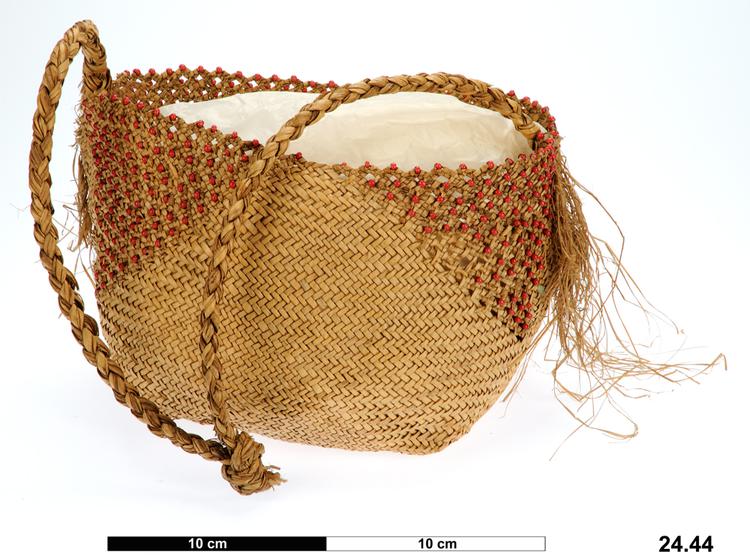
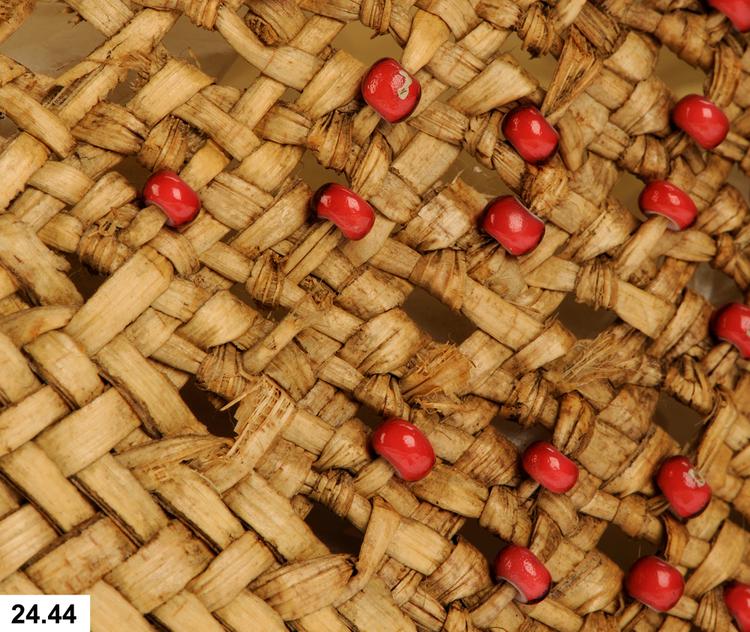
Twilled basket of coconut leaf strips with Western red glass trade beads ornamenting the sides in triangular panels. It has a long plaited handle attached to both sides which extend down inside the basket giving support to the structure.
Domestic Storage Basket, Vanuatu, Eastern Melanesia. Baskets played an important role in everyday life for the ni-Vanuatu. As in other parts of the Pacific, ni-Vanuatu men could quickly run up short-lived but strong carrying baskets from whole coconut leaves, to bring coconuts and root vegetables home from the gardens. The weaving of more delicate and artistic baskets, however, was a female art. Some of these baskets had a specialist purpose, such as harvesting the palolo worm from the sea when it bloomed, or straining starch from the processed inner pulp of the Sago Palm. Most, however, played a central role in domestic furnishing. They were used for storing clothing, foodstuffs, small tools and personal possessions. This is a nicely woven example of the latter. Constructed from split strips of banana leaf (Musa spp.), it incorporates twill-work and knotted panels of beading, of a kind that we also see on the waistbands of the finest fibre skirts from Vanuatu. As elsewhere in Oceania, the red glass beads were a trade commodity supplied by Westerners: red was always the most popular colour of trade beads and cloth in the Pacific, because it was understood to symbolise mana (supernatural vitality). Banana leaf, glass. Late 19th Century. Formerly in the private collection of Mr. Harry G. Beasley, and probably acquired by him from Mr Frank Burnett.



